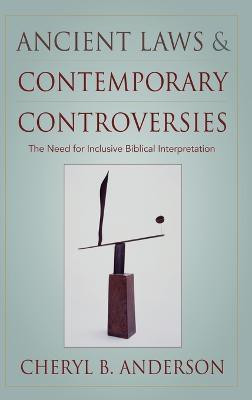Ancient Laws and Contemporary Controversies First Edition(English, Hardcover, Anderson Cheryl)
Quick Overview
Product Price Comparison
Many Christians ignore most Old Testament laws as obsolete or irrelevant. Others claim to honor them but in fact pick and choose among them very selectively in support of specific agendas, like opposition to homosexual rights. Yet it is a basic tenet of Christian doctrine that the faith is contained in both the Old and the New Testament. If the law is ignored, an important aspect of the faith tradition is denied. In this book Cheryl Anderson tackles this problem head on, attempting to answer the question whether the laws of the Old Testament are authoritative for Christians today. This question is crucial, because some Christians actually believe that the New Testament abolishes the law, or that the major Protestant reformers (Luther, Calvin, Wesley) rejected the law. Anderson acknowledges the deeply problematic nature of some Old Testament law, especially as it applies to women. For example, Exodus 22:16-17 and Deuteronomy 22:28-29 both deem the rape of an unmarried female to have injured her father rather than the female herself. Deuteronomy requires the victim to marry her rapist. Anderson argues that biblical laws nevertheless teach us foundational values. They also, however, remind us of the differences between their ancient context and our own. She suggests that we approach biblical law in much the same way that Americans regard the Constitution. The nation's founding fathers were privileged white males who did not have the poor, women, or people of color in mind when they agreed that "all men are created equal." The Constitution has subsequently been amended and court decisions have extended its protections to those who were previously excluded. Although the biblical documents cannot be modified, the manner in which they are interpreted in later settings can and should be altered. In addition to her work as a scholar of the Old Testament, Anderson has been a practicing attorney, and has worked extensively in critical, legal, feminist and womanist theory. This background uniquely qualifies her to apply insights from contemporary law and legal theory to the interpretive history of biblical law, and to draw out their implications for issues of gender, class, and ethnicity.


